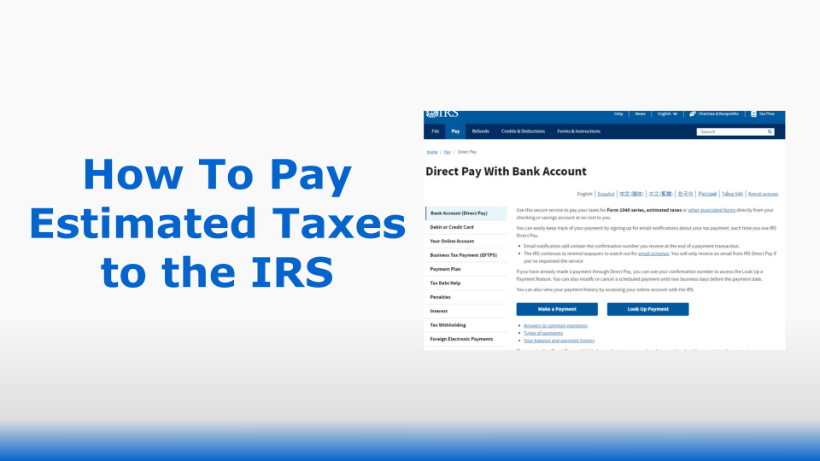Tax Extension
Published:Spring has arrived and April 15 will be here before we know it, but many of us won’t be ready to file our tax returns in less than a month.
Thankfully, the IRS allows taxpayers to request an extension of time to file, as long as the request is received by the original filing deadline (April 15).
>> Get a Personal Tax Extension
There are a few important things you should know about tax extensions before relying on one to postpone your filing obligations.
READ: Will I Be Penalized for Filing a Tax Extension?
We checked in with some tax experts to find out what to do if you need a tax extension, and how to file an application. Here are their answers:
Is it possible for anyone to get a tax extension? Even me?
Yes, it is true — anyone can get a tax extension.
Mark Luscombe, principal analyst at CCH (a Wolters Kluwer business) says, “You can get an automatic six-month extension to file your federal income tax return by submitting a Form 4868 (Application for Automatic Extension of Time to File U.S. Individual Income Tax Return) by the due date for the tax return, April 15.”
However, Luscombe cautions, you must remember that “this is an extension to file the return, not an extension to pay the taxes due.” When you submit IRS Tax Form 4868, you should include payment for any taxes due to avoid interest, penalties, and late fees which will otherwise accumulate until your return is filed.
Tax Form 4868 says “Automatic Extension” because all you need to do is submit Tax Form 4868 (in lieu of your income tax return) by the April 15 deadline and the IRS will automatically grant you an extension of time to file. You do not need to do anything else to get a tax extension.
How long is a tax extension good for?
A Federal income tax extension is good for six months, which extends your filing deadline from April 15 to Oct. 15.
What are the first steps I need to take to get a tax extension?
As with any tax issue, it is always best to take action as soon as you can. There is a time limit for requesting a tax extension, so you must be aware of your personal situation in order to determine if you need an extension of time to file.
“If you are already feeling like you may need an extension to file or could have difficulty paying the amount owed in April, it’s best to act early,” says Niall Wells, CFO of Planwise, an online budgeting tool. “Prepare yourself mentally by taking some time to understand your situation, seek the advice of a professional or contact the IRS.”
Once you have decided that you want to request a tax extension, you will need to choose a method for requesting an extension.
There are currently three ways you can get a tax extension:
1. Electronically file (e-file) Tax Form 4868 online
2. File a paper Tax Form 4868 by mail
3. Pay all or part of your income tax due (what you expect to owe) with your credit card or debit card using the Electronic Federal Tax Payment System (EFTPS)
It’s recommended that you read the instructions for Tax Form 4868 before filing to make sure you understand the details of the form.
Is it a good idea to file a tax extension? Or is it better to just go ahead and file normally if I can?
“Extensions serve the purpose to allow taxpayers to gather all their information so they can timely file a complete and accurate return without being assessed a late filing penalty,” says Ron Michelson, a CPA with Fiske & Co.
“Some people use the extension to procrastinate and would just rather not file their return until the extended due date in October. The most important point is to make sure that the taxpayer needs to estimate the tax they owe as best as they can, to avoid waiting until October and then getting hit with late filing penalties going back to April.”
What if I’m in the military or working overseas, and there’s no way I can file my tax return or a tax extension on time?
“Special rules apply for those that are outside of the U.S. or serving in a combat zone,” says Niall Wells, CFO of Planwise. “It is important to note that even if your extension for filing is granted, this does not extend your time to pay any amounts owing, and you may still incur interest and penalties if you do not remit the amounts payable by the April deadline.”
READ: How to File a Tax Extension If You’re In the Military
This means that it is crucial for you to plan ahead and manage your finances accordingly. If you neglect to file your income tax return on time, and you do not request a tax extension by April 15, the late fees and interest will be “hefty,” cautions Wells.
“Thankfully, there are options to pay by installment, though this may still accrue interest and penalties,” he says.
Who typically requests a tax extension?
In most cases, individuals applying for an extension are those who have complicated financial situations and need more time to assemble their tax return. Tax extensions are usually requested by people and businesses that do not have all of their information ready to file by April 15.
“For example, quite often taxpayers who have invested in partnerships or S corporations do not receive their K-1s from these entities until after the original April 15 due date. These entities returns are not due until Sept. 15, with extensions,” says Ron Michelson, a Fiske & Co. CPA.
Okay, I’m ready to request a tax extension. What do I need to do?
Remember that a tax extension gives you more time to file your income tax return, but it does not extend the deadline for paying the tax you owe for that year. You are always expected to pay your income tax to the IRS on-time or else you will be charged late fees, penalties, and interest. This means that you need to know how much tax you owe and be ready to submit payment by April 15, whether or not you are requesting a tax extension.
READ: Second and Additional Tax Extensions
“The first step in requesting an extension is to estimate your tax for the year based on the information that you have at the time of the extension,” says Ron Michelson, a CPA with Fiske & Co. “If the IRS determines you made no attempt to estimate your tax for the extension, the extension could be disallowed which could result in late filing penalties.”
There are 3 different ways you can choose to request an extension of time to file — you can e-file Tax Form 4868 online, file a paper Form 4868 by mail, or use EFTPS (Electronic Federal Tax Payment System) to pay all or part of your income tax due with your credit/debit card. Consider all your options and choose the method that works best for you.
If I get a tax extension, am I subject to increased interest or late payments?
“When you make an extension you are extending the filing due date of the return,” says Ron Michelson, a CPA with Fiske & Co. “Although you are not required to make a payment of the taxes you estimate are due, Form 4868 does not extend the time to pay taxes.”
He adds, “If you do not pay the taxes that you owe, in general interest and penalties will be charged on any underpayment.”
For taxpayers who are not able to pay the full amount of tax that they owe by the April 15 deadline, the IRS offers some payment plan options (such as an installment agreement).



